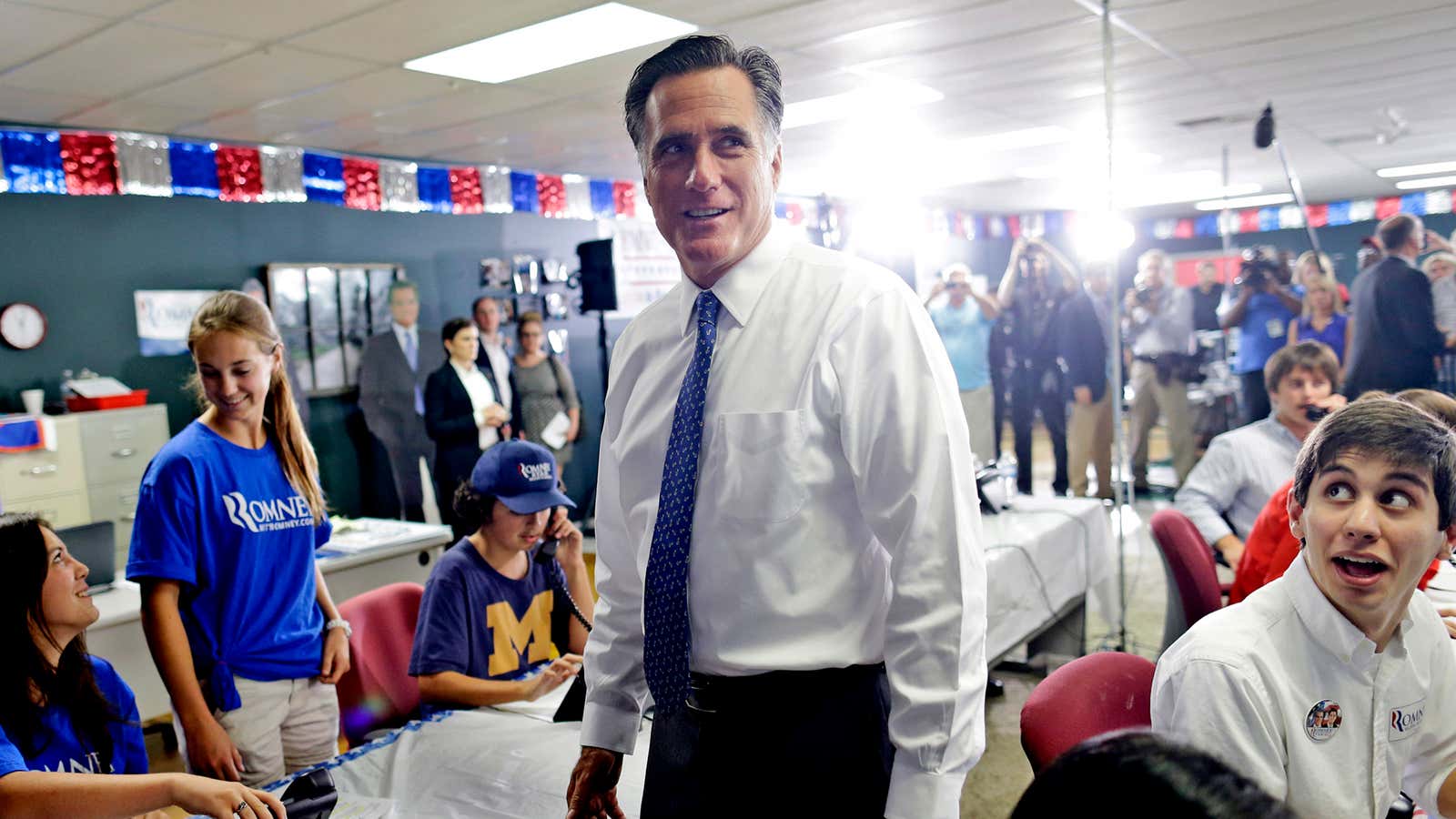As the first presidential debate of the US election season kicks off this evening, the breakdown of the two electoral coalitions is becoming clear. One—youth, ethnic minorities and the college-educated—is backing President Barack Obama, and is demographically growing in size. The other—blue-collar white voters and seniors—lines up behind Republican challenger Mitt Romney, and is gradually shrinking. There are dollars and cents at stake: The candidates’ policy proposals reflect their backers’ priorities, making 2012 into an inter-generational cash grab, with older Americans seeking to preserve the gains of a lifetime’s labors as the youth yearn for an investment in its future.
Obama is largely attempting to maintain current levels of public investment while winding down public debt over time, but Romney’s austerity plan would reduce government spending and taxation to levels not seen since before the 1950s in an effort to create tax-cut-driven growth. (Economists are dubious.)
The Republican says he won’t cut Social Security or Medicare, the fiscally-challenged public pension and health insurance plans for American senior citizens, or the country’s sky-high defense spending. For that to work, he’ll have to cut 40 percent of spending on everything else. All of that everything else—investments in research, education, infrastructure, and welfare—helped build the economy today’s seniors enjoyed, while the impact of cuts will fall on working-age Americans over their entire lifetimes.
A case in point: President Obama’s 2010 health-care reforms overhauled Medicare, including $716 billion in cuts to medical service providers. Republicans convinced many older voters that the cuts would affect them and their anger helped propel the party into many more seats in that year’s Congressional elections. Romney has promised to repeal all of Obama’s health initiatives, which would take away benefits from young people (the ability to stay on their parents’ insurance until age 26; free access to birth control) and reduce even the limited effect that Obamacare had in mitigating Medicare’s impending funding problems.
The same theme holds true on education spending. The president wants to maintain low interest rates on student loans; Romney’s Republican allies in Congress want them hiked. With the number of student loans in default rising, some might say keeping rates low is the best way to keep defaults from getting worse; the Republicans, on the contrary, argue that higher rates would deter more people from taking on debt they can’t afford. But restricting public support for education is an obvious blow to the prospects of the Millennial generation (those born between 1982 and 2002).
The biggest issue is probably Romney’s tax plan. The Tax Policy Center’s widely-reported analysis (pdf) of the plan shows that to meet his goals of reducing tax rates while maintaining current revenue levels, Romney will actually raise taxes on most Americans. In 2011, the median income for 25-34 year olds was just over $50,0000 a year. The analysis estimates that under a Romney plan, someone earning that level of income would pay $641 more annually; someone making over $1 million would pay $88,000 less. Needless to say, this too favors the older generation.
But whoever wins will, soon after the election, have to find a way to distribute the pain of higher taxes and less public spending. Obama will favor a more even balance of the two, which may leave America more indebted than Romney would, and it will be the younger generation that carries most of the burden of that debt. But they will also gain more from investments today—hence their support for Obama.




